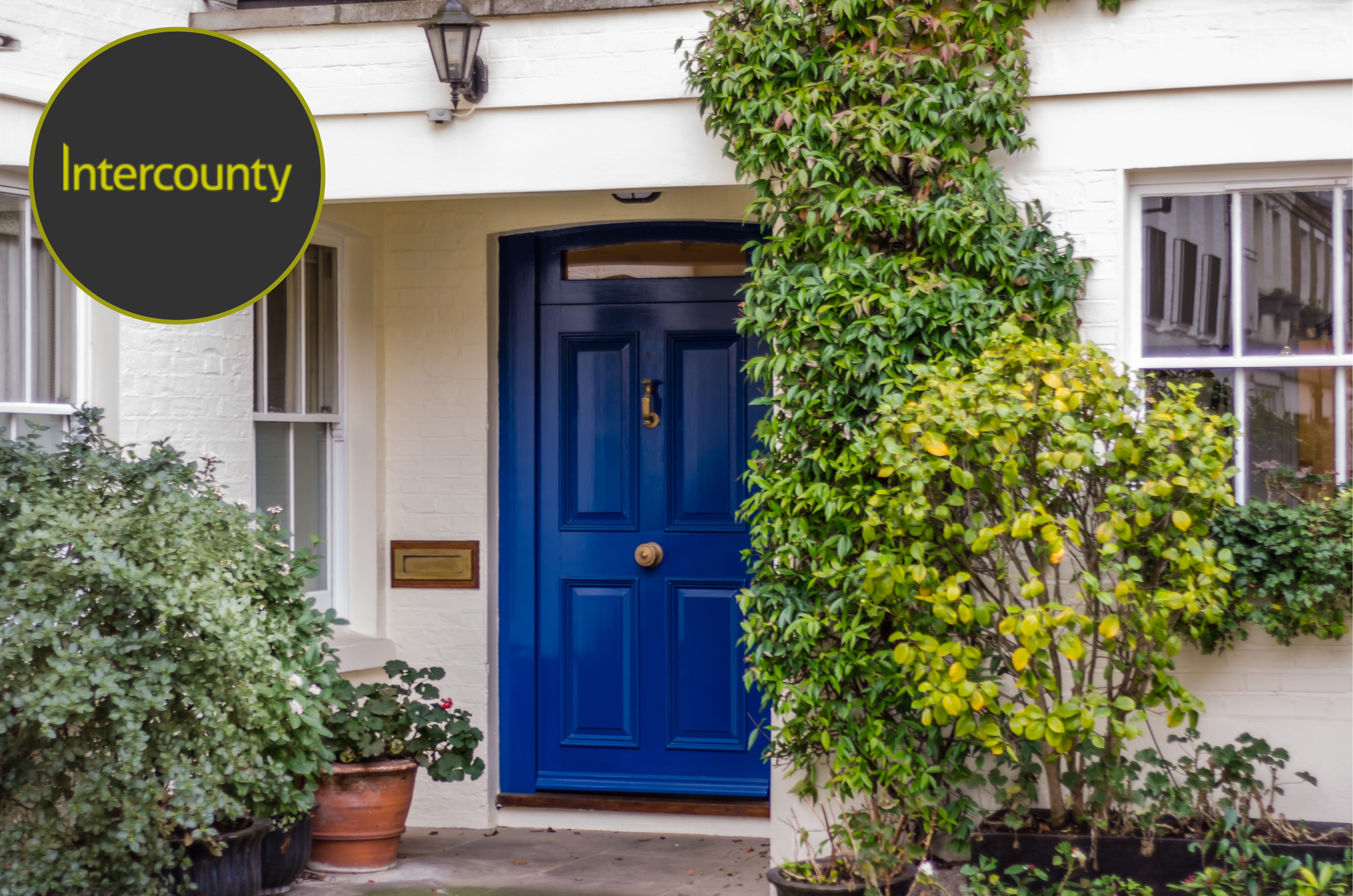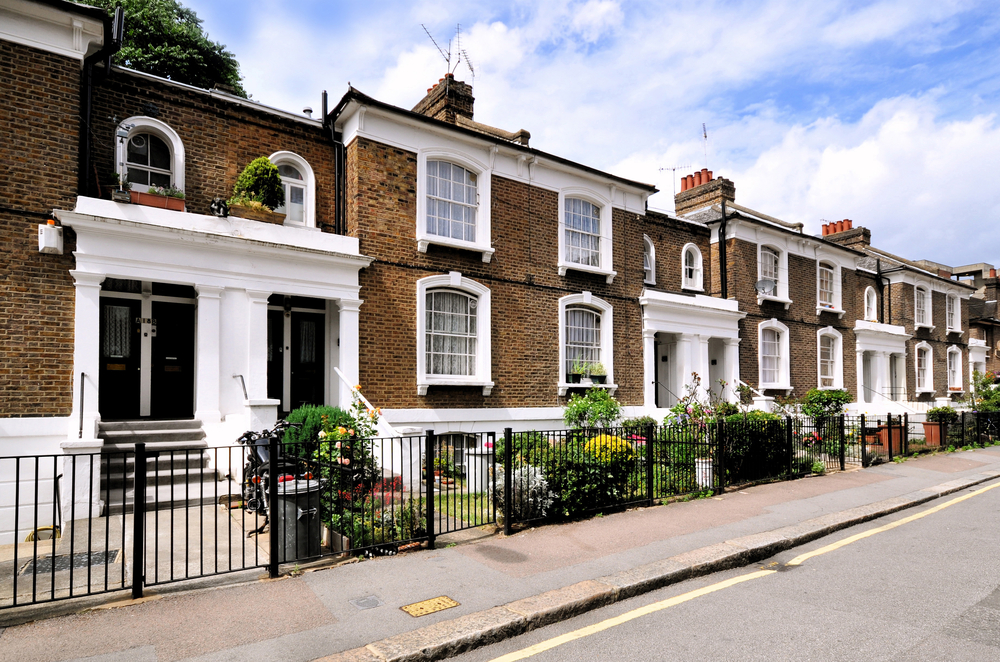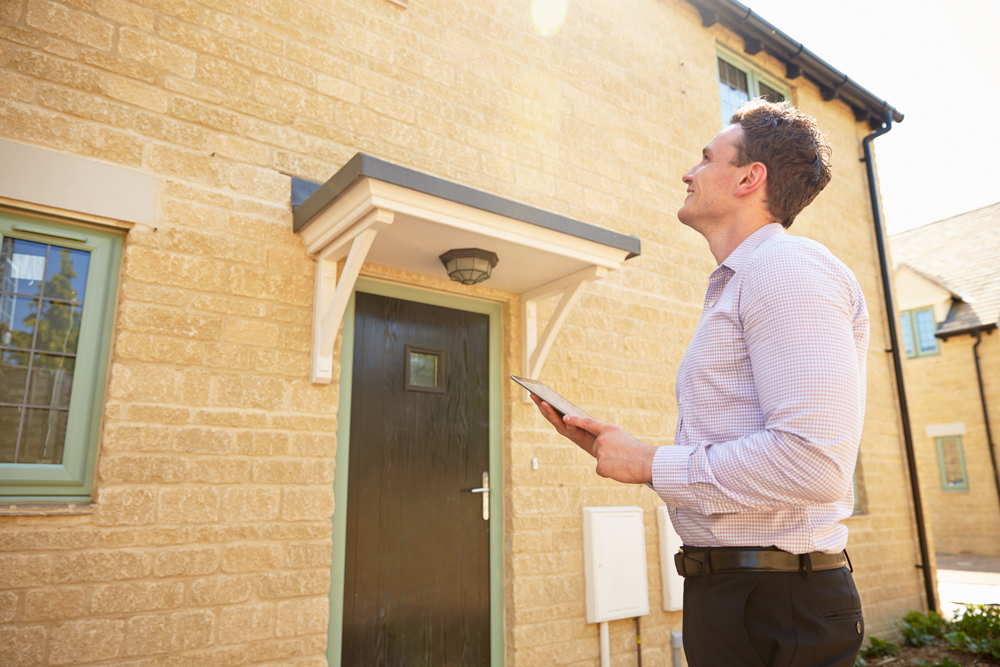|
How to increase your property's kerb appeal
In this month's packed newsletter, we start off by offering suggestions on how to increase your property's appeal from the outside, also known as kerb appeal.
We also reveal how many viewings it will typically take to sell your home, there are top tips on how to prepare your garden for the Summer and we breakdown what you need to know regarding the recently announced Fitness for Human Habitation Act.
Finally, we've good news for the UK property market with growth predicted for significant parts of the country alongside the news that our agent fees are the cheapest across Europe.
How to increase your property's kerb appeal

Any estate agent will tell you that making a good first impression is key when presenting your home for sale. Potential buyers and renters are always extra vigilant when it comes to viewing properties, from the front gate to the back garden, meaning it’s even more important to present your home in its best light from the off. But even if you’re not looking to sell up, there’s something to be said for sprucing up the front of your home.
One of the best ways to do that is to maximise your kerb appeal, which refers to how striking your home is when viewed from the road. When you think about searching for properties online, how likely are you to click on details for a home if the lead photograph is rather drab? The homes that perform the best on property websites like Zoopla and Rightmove are the ones that can grab the attention from the off.
Thankfully, maximising your kerb appeal doesn’t have to break the bank!
1) Front and centre
The front door is always a good place to start, especially as it’s one of the first things that people see when it comes to your home. UPVC doors can be cleaned easily enough with the right product, and if you’ve a wooden door, why not consider a fresh lick of paint? You can also bring your garage or front gate into the equation for a bit of colourful synchronicity.
Giving your letterboxes and door handles a polish shows good attention to detail, but if they’re looking a little tired, don’t be afraid to replace them.
2) Plot your path to success
The path to your front door or outdoor paving stones can get dirty with ease, so applying some TLC, whether that’s with a pressure washer or a good ol’ bucket of warm water and a scrubbing implement will instantly help your outside space.
If you have paving stones, then keeping your weeds in check is also a shrewd move; pulling out the week killer for large front porches, paths or driveways will make things look far neater.
Gravel is a feature of many a home, and it’s also one that’s easily refreshed with a bit of colour. Locate some similar stones to your current palette and use a rake to spread them together and you’ll be surprised by how much it refreshes the approach to your front door.
3) Plant an impression
A simple touch, but an effective one. Adding some greenery around your front door suggests to the naked eye that you take care of your property and look after your home, so look into some potted plants to go outside your front door. Hanging baskets are another option if ground space is limited.
4) Window dressing
The windows on your front room are another area where little touches can make a big difference. Have a look into replacing your curtains or blinds with lined alternatives for a tidy appearance, or, if your windows aren’t providing you with sufficient insulation, you could even look at replacing them altogether.
5) Night Lights
Finally, take a look at the area around your front door at night and imagine how much more welcoming it could be with a bit of light. An outdoor power supply will help if you’re looking to install something akin to a classic-style lamp, but you needn’t go overboard; a solar-powered light is easy to install, charges itself during the day and won’t cost you extra!
How many viewings will it take to sell your home?

When listing a home for sale, we all cross our fingers and hope that someone will make an offer within the first few weeks and everything will be wrapped up neatly and quickly.
In reality, selling a home can take some time and your best approach is to present your home in its best light and have patience.
But how long on average does it take to sell a home?
New research has tried to answer this question and found that vendors are underestimating just how many viewings they will have before someone makes an offer.
Data released last year from Rightmove, revealed that the average time overall to sell a home was 62 days, which is just short of 9 weeks. It is worth noting that other studies on the subject have found that the viewings don’t always go into double digits. It can also depend on where you live, as previous studies have found that homes in the north take fewer viewings than homes in the south.
There are a few things you can do to get your home sold a little faster, such as clearing the clutter and staying on top of the cleaning. Doing all you can to make your home seem like a bright open space is vital.
For more help on how to present your home in its best light, you should talk to us.
Growth predicted for significant parts of the United Kingdom

Significant sections of the United Kingdom can expect to see an increase in house prices after a strong performance in the year to January 2019. The average price increase for the entire country was 1.7%, with Wales leading the way with a rise of 4.6% closely followed by the Midlands at 4.4%.
Unfortunately, not all regions will be feeling the benefit, with London suffering a 1.6% drop in the same period and the East of England looking at a more reasonable yet still frustrating 0.2% drop. This isn’t out of step with the Bank of England’s inflation report, however; the capital has been subject to tax changes alongside an increase of regulations which have taken their toll.
Elsewhere, mortgage approvals have continued to enjoy a rise with 66,800 accepted in January, up over 1000 from the previous six months’ average of 65,500.
This increased activity is all the more impressive considering that the BoE’s report suggested that property market activity had been muted, with the Royal Institution of Chartered Surveyors’ residential market survey also alluding to subdued enquiries, new instructions and sales.
“While buyers can currently expect to purchase at a reduced price in London, the opposite can be said for the rest of the UK with continued growth across the majority of regions, suggesting there are plenty of investment opportunities elsewhere. The Midlands, in particular, stands out as a region for investment, with house prices growing by around 4%. Amongst the headlines of falling house prices, it’s therefore important not to overlook the fact that significant pockets of the UK continued to be poised for growth.”
The Fitness for Human Habitation Act: what you need to know

With the furore around the Tenant Fee Ban, it has been easy to miss the latest lettings legislation which came in to place last month on 20th March – the Fitness for Human Habitation Act. The implementation of this Act means that tenants will have further rights to request improvements to homes which fall into the “sub-standard” category.
The Fitness for Human Habitation Act is a revival of the Landlord and Tenant Act from 1985, essentially reinforcing the covenant and bringing the standard of lettings accommodation back to the forefront of legislation.
Who does the Act apply to?
The Act will apply to:
Tenancies shorter than 7 years, starting on or after 20th March 2019
Tenancies renewed for a fixed term on or after 20th March 2019
From 20th March 2020, the Act will apply to all periodic tenancies that started before the initial commencement date of 20th March 2019 – landlords with current tenancies, therefore, have 12 months before the requirements from the Act come into place.
How would a property be deemed unfit for human habitation?
The Act stipulates 29 different ‘hazards’ which determine whether a house is ‘fit for human habitation’. The hazards include but are not limited to:
• Condensation, damp and mould growth
• Excessive cold or heat
• Security (or lack, thereof)
• Fire, gas and electrical safety
• Natural lighting
• Water supply
• Sanitation
• Facilities for preparing and cooking food
• Hazards posed by the internal arrangement
• State of repair
•
Your property might be deemed unfit “If, and only if, it is so far defective in one or more of those matters that it is not reasonably suitable for occupation in that condition.” If a property is deemed unfit, then it is the landlord’s responsibility to make improvements to the property and/or compensate the tenant.
Are there any exceptions to the Act?
There are some exceptions in cases where:
• The problems with the property are caused by tenant behaviour
• The problems are caused by ‘acts of God’ such as storms, floods and fire
• The problem is caused by the tenants’ belongings
To read the full government legislation, click here.
Top tips for preparing your garden for Summertime

We all love that summer pleasure of sitting outside and enjoying the feeling of the sunshine on our skin, yet despite this melanin-inducing activity being a firm favourite, many of us shy away from gardening. Here are a few tips to help revitalise your garden or outdoor space, just in time for the summer!
The right grounding
Before you go out and start purchasing new flowers and shrubs to zhoosh up your garden, it is important to have an idea of the soil that you will be planting in. Different plants will thrive in different environments, and the consistency of your soil will be a key player in this; is your soil light and sandy or heavier with elements of clay? This, as well as the amount of light which the new plants will receive, should be kept in mind before you go and make any expensive purchases.
Put the ‘plan’ in ‘plant’
That old adage of “fail to plan and plan to fail” exists for a reason; it rings true amongst many of us. The same is applicable for when you are upgrading your garden – planning on how you are going to use the space will mean that you maximise your outdoor area. Decide what you are going to use the space for and segment it appropriately; eating areas, planting areas and water features all make a garden more pleasant; however, if there is not enough room between each then the space becomes overcrowded and less appealing.
The perfect lawn
When we think of a quintessentially British garden, we immediately think of a lush and healthy grassy area. If you’re yearning for a luscious lawn, then ensure that you water your green areas regularly – the optimum time to water the area is between 4am and 8am. If we are lucky enough to have another hot summer like last year, then remember that any temperature above 30 degrees will stunt growth and temperatures from 26 degrees onwards will not benefit your lawn – therefore keep the grass a little longer which will prevent the soil from drying out.
Sitting areas
One of the easiest ways to spend a little more time in your garden is to create an outdoor sitting space; from simply installing a table and chairs, to installing a full decking area this can transform your outdoor space. If you already have a suitable surface such as paving or decking then purchasing a table and chairs will be an inexpensive way to create outdoor living space, but don’t despair if you need to spend a little more to create suitable grounding for your table. Buying stones or pebbles and some tarpaulin to lay them upon is a very cost-effective manner to provide a nice zone for seating – look in your local supermarkets as well as the DIY stores as they often provide better value for money during seasonal offers.
A shed load of storage!
If you’re looking to make the most of your garden this spring and summer, then a shed might seem like it should be the last item on your list of priorities. However, a shed can offer valuable storage and organisation to your garden that will encourage you to make the most of the space; having your gardening tools easy to access and your outdoor supplies organised will make your outdoor living much easier. In addition to this, a shed can be a beautiful piece of garden architecture; go bold on the colour and choose pastels such as blue or pink for that country cottage kind of chic that looks wonderful in all types of garden. In addition, adding some stylish bunting to the shed will enhance the overall aesthetic, and can be extended to other parts of your garden to create a more cohesive look.
UK found to have cheapest agent fees across Europe

For most of us, the purchase of a property will be the biggest single expense which we ever have to cover, and the fees associated with this are often touted as expensive. However, a recent report has shown that fees in the UK are the lowest in Europe and therefore the old myth of expensive fees has been debunked, with other parts of Europe up to five times more expensive than the UK.
The average commission paid on the sale of a property in the United Kingdom is 1.2%, according to analysis from GetAgent, which is lower than all other European countries, with Denmark and Ireland next cheapest at 1.25% and 1.75% respectively. On the other end of the scale is Romania with an average fee of 6% - five times more than the UK.
“I think it’s fair to say that estate agents in the UK have a tough time of it when it comes to justifying their fees, with the predominant opinion being that they charge too much for the service provided,” said Colby Short, GetAgent’s chief executive officer.
“This really isn’t the case and as this research shows, the UK is actually home to the lowest estate agent fees in the EU and therefore you could argue, the best service as well. Of course, the price of property means there is a degree of relativity and the 6% commission you might pay in Romania will be a lot lower due to the lower cost of getting on the ladder,” he pointed out.
“So while you consider if three to four thousand pounds is a justifiable spend when selling a property for hundreds of thousands, remember you could be paying upward of ten thousand if you were to live in another area of Europe,” he added.
<< News
|
|